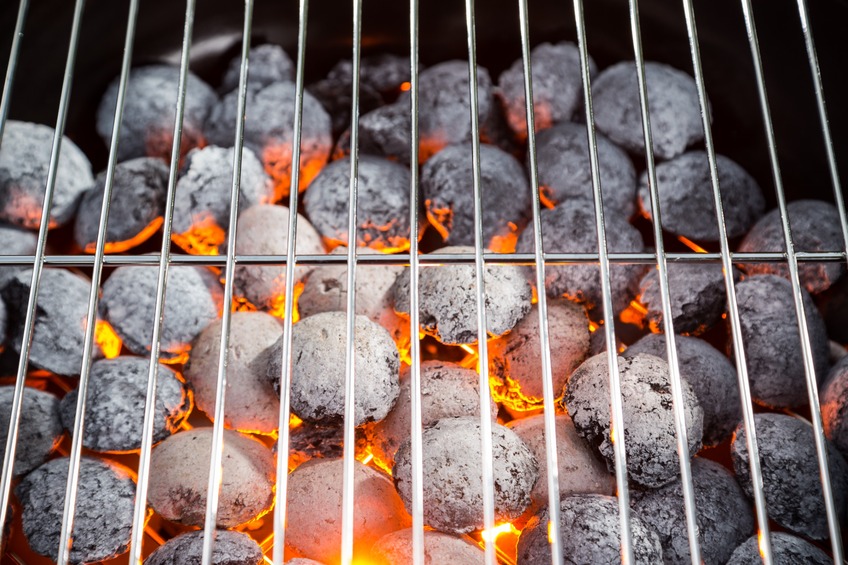 Charcoal grilling is a popular method of cooking that imparts a distinct smoky flavor to food, making it a favorite among barbecue enthusiasts.
Charcoal grilling is a popular method of cooking that imparts a distinct smoky flavor to food, making it a favorite among barbecue enthusiasts.
While the taste may be irresistible, there are concerns about the health implications associated with charcoal grilling.
In this article, we will explore the reasons why charcoal grilling may be bad for your health and discuss potential risks associated with this cooking method.
Formation of Harmful Compounds
Airborne Particulate Matter

The act of charcoal grilling not only imparts its delectable flavors to food but also releases airborne particulate matter into the surrounding environment.
Inhaling these particles can have significant and adverse health effects.
Among these particles, fine particulate matter (PM2.5) stands out as a major concern.
With the ability to penetrate deep into the lungs, PM2.5 is associated with respiratory issues such as asthma and chronic bronchitis, posing a threat to respiratory health.
Furthermore, prolonged exposure to PM2.5 has been correlated with cardiovascular problems, underscoring the importance of considering the broader health implications of charcoal grilling practices.
Awareness of these potential risks is crucial for making informed choices and adopting measures to mitigate the impact on both personal health and the surrounding environment.
Carbon Monoxide Exposure
The combustion of charcoal, an essential element in the art of grilling, is not without its risks—it produces carbon monoxide, a silent and odorless gas.
Grasping the scientific intricacies of this process is pivotal for recognizing the potential dangers linked to carbon monoxide exposure during grilling activities.
Taking measures to prevent carbon monoxide exposure becomes imperative, involving the implementation of effective ventilation and safety protocols.
From opting for well-ventilated grilling locations to steering clear of using charcoal grills in confined spaces, a comprehensive understanding of these precautions ensures a safer grilling experience, catering to both novices and seasoned grillmasters alike.
Potential for Food Contamination

While the enticing aroma of sizzling meat on a charcoal grill is a sensory delight, it’s crucial to address a significant aspect of this cooking method—the potential for food contamination.
Factors contributing to the risk of foodborne illnesses during charcoal grilling warrant attention, prompting a discussion on strategies to ensure the safety of your culinary creations.
INCOMPLETE COMBUSTION AND UNEVEN COOKING
The allure of charcoal grilling lies in its ability to impart a smoky flavor to food, yet the process may contribute to incomplete combustion and uneven cooking.
Understanding how these factors can result in undercooked or unevenly cooked food is essential for recognizing the potential risk of foodborne pathogens lingering in your grilled dishes.
TEMPERATURE MONITORING
A pivotal aspect of ensuring food safety during charcoal grilling is monitoring the internal temperature of grilled items.
Different types of meat require specific temperatures to eliminate harmful bacteria.
Exploring the recommended temperature guidelines for various meats empowers grilling enthusiasts to serve not only delicious but also safe dishes to their family and friends.
Safeguarding your culinary creations from the potential for food contamination during charcoal grilling involves a combination of awareness, safe practices, and diligence.
By addressing these considerations, you can elevate both the flavor and safety of your grilled delights.
Environmental Impact
In addition to personal health concerns, charcoal grilling has an environmental impact.
The production and use of charcoal contribute to deforestation and the release of carbon dioxide, exacerbating climate change.
Opting for more sustainable grilling methods, such as gas or electric grills, can help mitigate these environmental consequences.
Bottom Line – Why is Charcoal Grilling Bad for You?
 While the allure of charcoal-grilled food is undeniable, it is essential to be aware of the potential health risks associated with this cooking method.
While the allure of charcoal-grilled food is undeniable, it is essential to be aware of the potential health risks associated with this cooking method.
By understanding the formation of harmful compounds, addressing airborne pollutants, and considering alternative grilling options, individuals can make informed choices to minimize the health impact of charcoal grilling.
Ultimately, moderation, proper ventilation, and a balanced approach to cooking methods can contribute to a healthier grilling experience.


